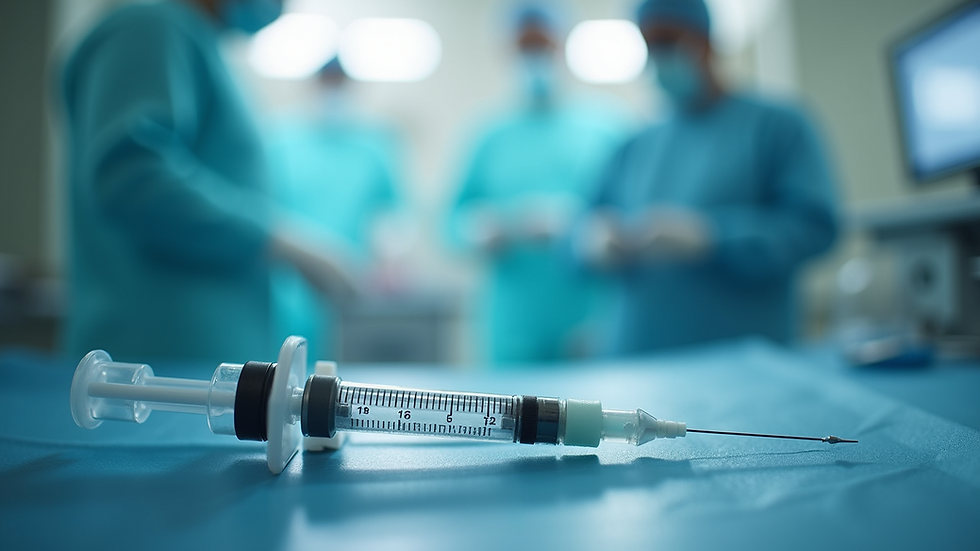Treating Peyronie's Disease with Modern Techniques
- Fabio Castiglione
- Sep 29, 2025
- 3 min read
Peyronie's disease is a condition that affects the penis, causing curvature, pain, and sometimes erectile dysfunction. It occurs when fibrous scar tissue develops inside the penis, leading to abnormal bending during an erection. This can impact confidence, intimacy, and overall quality of life. Fortunately, advances in medical science have introduced modern techniques that offer hope for effective management and improvement.
Understanding Peyronie's Disease Therapy London
Peyronie's disease therapy in London has evolved significantly over recent years. Traditional treatments often involved invasive surgery, which carried risks and long recovery times. Today, patients have access to a variety of less invasive options that focus on reducing curvature, alleviating pain, and restoring function.
Non-Surgical Treatments
Non-surgical therapies are usually the first line of treatment, especially in the early stages of the disease. These include:
Oral Medications: Certain drugs can help reduce inflammation and scar tissue formation. While not always effective alone, they can be part of a combined approach.
Injection Therapy: Collagenase clostridium histolyticum (CCH) injections are FDA-approved and work by breaking down the scar tissue causing the curvature. This treatment requires multiple sessions but has shown promising results.
Shockwave Therapy: Low-intensity shockwaves are applied to the penis to stimulate blood flow and tissue repair. This method is non-invasive and can reduce pain and improve erectile function.
These therapies are often combined with penile traction devices, which gently stretch the penis over time to reduce curvature.

Injection therapy being prepared for Peyronie's disease treatment
Advanced Surgical Options for Peyronie's Disease Therapy London
When non-surgical methods are insufficient, surgical intervention may be necessary. Modern surgical techniques aim to correct curvature while preserving erectile function as much as possible.
Types of Surgery
Plication Surgery: This involves shortening the longer side of the penis to straighten it. It is less invasive and suitable for mild to moderate curvature.
Grafting Procedures: For more severe cases, the scar tissue is removed and replaced with a graft from another tissue source. This can restore length and shape but requires more recovery time.
Penile Implants: In cases where erectile dysfunction accompanies Peyronie's disease, penile implants can both straighten the penis and restore erectile function.
Surgical decisions are highly individualised, based on the severity of the disease, patient health, and personal preferences.

Instruments prepared for advanced Peyronie's disease surgery
Lifestyle and Supportive Measures
Managing Peyronie's disease is not only about medical treatments. Lifestyle changes and supportive care play a crucial role in improving outcomes.
Psychological Support: The emotional impact of Peyronie's disease can be significant. Counselling or support groups can help patients cope with anxiety, depression, or relationship issues.
Healthy Lifestyle: Maintaining a balanced diet, regular exercise, and avoiding smoking can improve overall vascular health, which benefits penile tissue.
Regular Follow-Up: Monitoring the condition with a healthcare provider ensures timely adjustments to treatment plans.
These measures complement medical therapies and contribute to better long-term results.

Healthy lifestyle activities supporting Peyronie's disease management
Accessing Expert Care in London
For those seeking specialised care, London offers access to experienced urologists and clinics dedicated to Peyronie's disease. One can find comprehensive evaluation and personalised treatment plans that incorporate the latest techniques.
If you are considering options, it is important to consult with a specialist who understands the nuances of the condition. They can guide you through the available therapies and help select the best approach for your situation.
For example, peyronie's disease treatment london provides access to cutting-edge therapies and expert consultation in a confidential and supportive environment.
Moving Forward with Confidence
Living with Peyronie's disease can be challenging, but modern medicine offers many avenues for improvement. Whether through non-invasive treatments, advanced surgery, or supportive care, patients can regain function and confidence.
If you or someone you know is affected, exploring the latest treatment options in London can be a positive step. Early intervention and expert guidance are key to achieving the best possible outcomes.
Taking control of your health today can lead to a better tomorrow with renewed hope and quality of life.




Comments